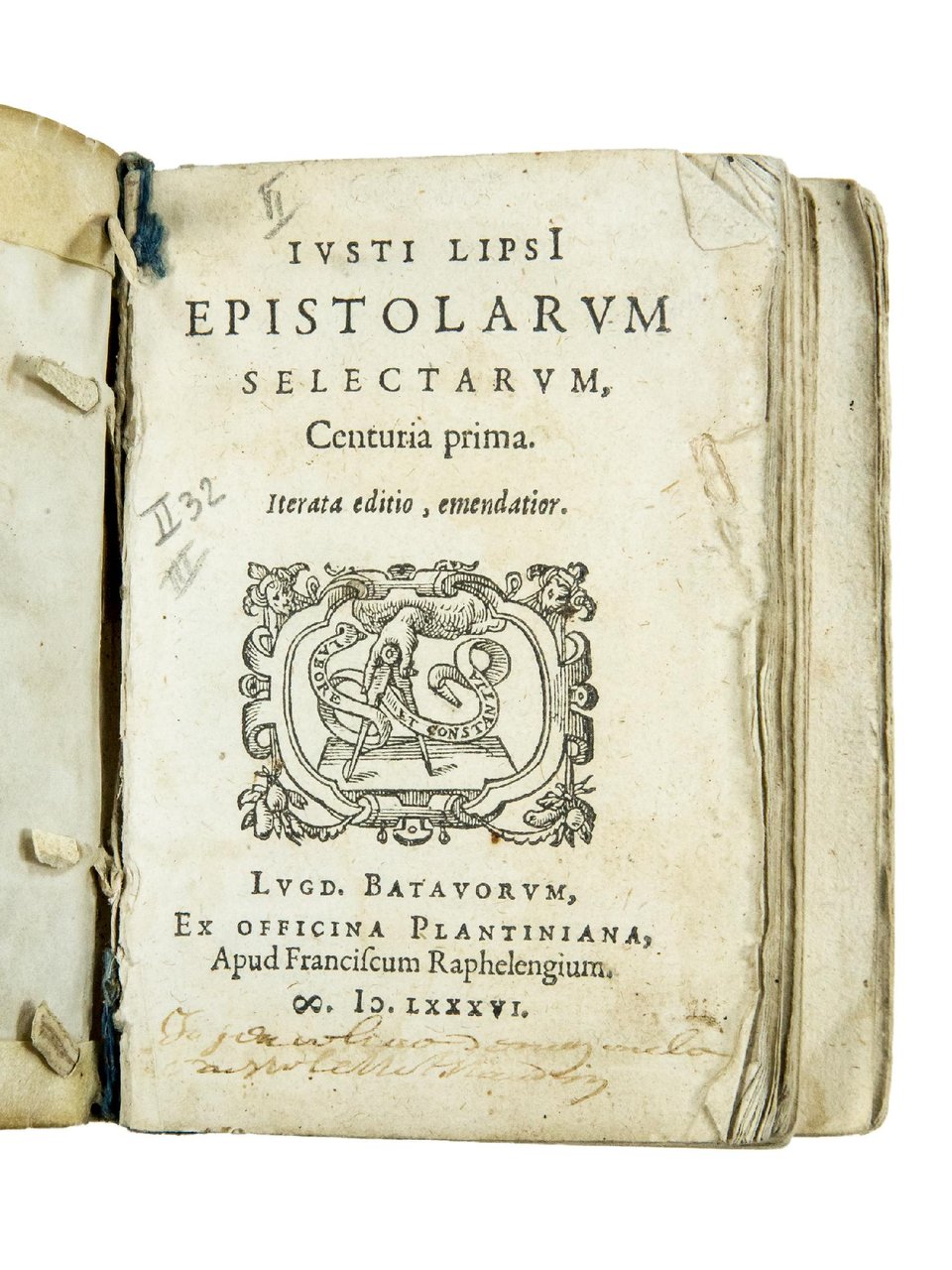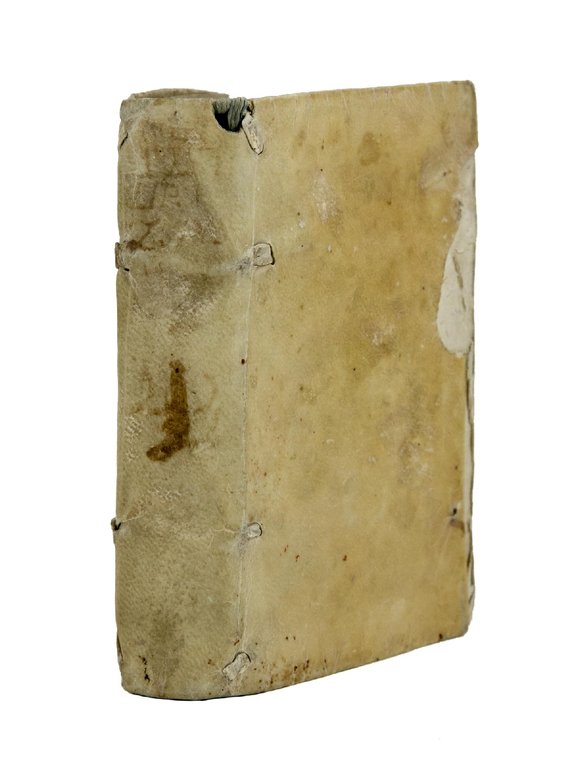

Libri antichi e moderni
LIPSIUS, Justus (1547-1606)
Epistolarum selectarum, Centuria prima. Iterata editio, emendatior
Ex officina Plantiniana, Apud Franciscum Raphelengium, 1586
700,00 €
Govi Libreria Antiquaria
(Modena, Italia)
Le corrette spese di spedizione vengono calcolate una volta inserito l’indirizzo di spedizione durante la creazione dell’ordine. A discrezione del Venditore sono disponibili una o più modalità di consegna: Standard, Express, Economy, Ritiro in negozio.
Condizioni di spedizione della Libreria:
Per prodotti con prezzo superiore a 300€ è possibile richiedere un piano rateale a Maremagnum. È possibile effettuare il pagamento con Carta del Docente, 18App, Pubblica Amministrazione.
I tempi di evasione sono stimati in base ai tempi di spedizione della libreria e di consegna da parte del vettore. In caso di fermo doganale, si potrebbero verificare dei ritardi nella consegna. Gli eventuali oneri doganali sono a carico del destinatario.
Clicca per maggiori informazioniMetodi di Pagamento
- PayPal
- Carta di Credito
- Bonifico Bancario
-
-
Scopri come utilizzare
il tuo bonus Carta del Docente -
Scopri come utilizzare
il tuo bonus 18App
Dettagli
Descrizione
Adams, L-815; Bibliotheca Belgica, III, p. 933; Voet, no. 1544.
SECOND EDITION (there are also extant copies with Antwerp as printing place) dedicated to the magistrates of the city of Utrecht (Leiden, November 13, 1585).
This is one of the very first books printed by Frans van Ravelingen (1539 -1597), Christopher Plantin's son-in-law, who managed the Plantin office in Leiden. He also held the chair in Hebrew at Leiden from 1587, and had knowledge of Arabic and Persian. He wrote an Arabic-Latin lexicon, which was published posthumously in 1613. This was said to be the first proper dictionary of the Arabic language. He collaborated on the Antwerp Polyglott Bible, and became the official printer to the University of Leiden. His scholarly printing qualities were one of the attractions that drew Joseph Justus Scaliger to Leiden in 1593.
The present edition contains the same one-hundred letters of the edition princeps (Voet 1543), but has the two laudatory poems by Frans van Ravelingen and by Theodor Esych printed at the end. Added is the imperial privilege of February 21, 1565 granting Christoph Plantin the exclusive rights on the book within the borders of the empire. Although the edition is announced to have been ‘amended', these emendationes have only been very slight (cf. J. de Landtsheer, Justus Lipsius, 1547-1606, and the Edition of his ‘Centuriae miscellaneae, 1586-1605; some Particularities and Practical Problems, in: “Lias”, 25, 1998, p. 75).
Born near Louvain in the town of Overlise, Justus Lipsius distinguished himself as a student of the classics first at the Jesuit college at Cologne and subsequently at the university in Louvain. Shortly after completing his studies, he published a precocious volume of Variae Lectiones (1569), a collection of philological observations on classical texts. Written in a polished Ciceronian style and dedicated to no less a figure than Cardinal Granvelle, chief minister of Philip II in the Low Countries, the volume quickly captured the attention not only of the powerful prelate but also of Europe's scholars.
This initial work had significant and lasting effects on Lipsius' career; the most immediate was his appointment as Latin secretary to Granvelle, who took the young man to Rome, where he was introduced to international power politics as well as to the treasures of Italian libraries, including the Vatican's. An equally significant result of the cardinal's patronage was the opportunity it afforded Lipsius to make the acquaintance of Marc-Antoine Muret, the French scholar who was perhaps the most famous Latinist of his age.
A recent convert to the anti-Ciceronian movement, Muret in turn made a convert of Lipsius. The first fruit of this interest was Lipsius' famous edition of Tacitus (1575), and its culmination was Politicorum libri sex (1589), a compilation of classical political wisdom directed explicitly at the social and religious crises of the sixteenth century. These works won him a reputation as a ‘politician', or student of prudentia, which was never equaled or corrected, at least in Italy, by the fame of his later works.
A corollary interest was the style and philosophy of Seneca. Lipsius' most famous and influential work, De constantia (1584), is a synthesis of Christianity and Stoic philosophy. The crowning achievement of his career are two studies of Stoicism, Manuductio ad stoicam philosophiam and its sequel Physiologia stoicorum (both 1604), and his monumental edition of Seneca (1605).
After two years in the service of the cardinal, Lipsius returned briefly to Leuven, only to leave again in 1571, apparently fearing the strife that had broken out anew between his countrymen and their Spanish rulers. He went to the Viennese court of Maximilian II, where he met such renowned literary figures as Ogier Busbecq, Joannes Sambucus, Joannes Crato, a

